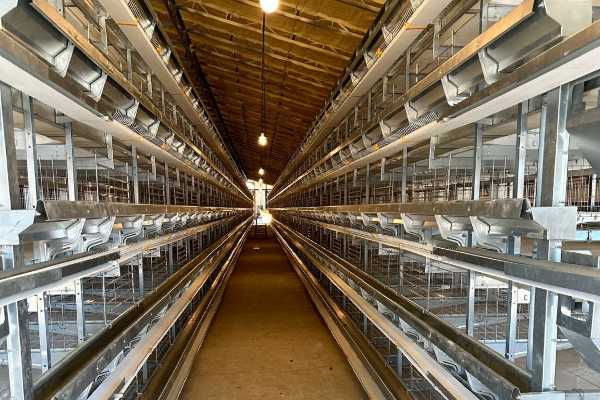Poultry Farming in Mombasa: A Comprehensive Guide
Time : 2025-05-14
Mombasa, with its vibrant culture and beautiful landscapes, has become a hub for various industries. One such industry is poultry farming, which has been gaining momentum in the region. In this article, we’ll dive into the world of poultry farming in Mombasa, providing you with a comprehensive guide that is both informative and practical. So, let’s get started!
The Basics of Poultry Farming in Mombasa
1. What is Poultry Farming?
Poultry farming involves the raising of domesticated fowls, such as chickens, ducks, turkeys, and geese, primarily for meat and eggs. In Mombasa, chicken farming is the most popular type of poultry farming, due to the high demand for chicken meat and eggs.
2. Importance of Poultry Farming in Mombasa
Poultry farming in Mombasa plays a vital role in the local economy, providing employment opportunities, food security, and contributing to the food supply chain. The industry has also led to the development of ancillary businesses, such as feed production, transportation, and processing facilities.
Choosing the Right Breed for Your Poultry Farm
When it comes to poultry farming in Mombasa, selecting the right breed is crucial. Here are some popular poultry breeds that thrive in the region:
1. Broiler Chickens
Broiler chickens are bred for meat production and are the most common breed in Mombasa. They grow rapidly and have a high meat yield. Popular broiler breeds include Cobb, Ross, and Arbor Acres.
2. Layers
Layers are bred for egg production. The most popular layer breeds in Mombasa are Leghorn, Brown Leghorn, and White Leghorn.
3. Dual-Purpose Birds
Dual-purpose birds, such as Rhode Island Red, Sussex, and Maran, are versatile and can be used for both meat and egg production. They are also known for their good adaptability to the local climate.
Setting Up Your Poultry Farm
Before starting your poultry farming business in Mombasa, there are several factors to consider:
1. Location
Choose a location that is accessible to your market, with adequate water and electricity supply. Mombasa has several suitable areas for poultry farming, such as Kisauni, Likoni, and Mtwapa.
2. Farm Design
Plan your farm layout carefully, ensuring proper space for housing, feeding, watering, and waste management. The farm should also be secure, with appropriate fencing and access control.
3. Housing
Housing is a critical factor in successful poultry farming. The following aspects should be considered when designing your poultry house:
– Adequate space per bird
– Proper ventilation and temperature control
– Easy access for feeding and watering
– Disease prevention measures
Feeding and Nutrition
A balanced diet is essential for healthy poultry. In Mombasa, there are various feed suppliers that provide high-quality poultry feed. Here are some tips for feeding and nutrition:
1. Feed Quality
Always ensure that you purchase high-quality feed that meets the nutritional requirements of your poultry. The feed should contain the right balance of protein, carbohydrates, fats, vitamins, and minerals.
2. Feeding Schedule
Maintain a regular feeding schedule, ensuring that your birds have access to feed throughout the day. The amount of feed provided should be adjusted according to the stage of growth or production.
Health and Disease Management
Keeping your poultry healthy is vital for a successful poultry farming business. Here are some tips for health and disease management:
1. Biosecurity
Implement biosecurity measures to prevent the introduction of diseases onto your farm. This includes:
– Properly sanitizing equipment and vehicles
– Limiting access to the farm
– Regularly disinfecting housing
2. Vaccination
Administer vaccines according to a recommended schedule to protect your poultry from common diseases.
3. Regular Health Checks
Regularly inspect your poultry for signs of illness and seek veterinary advice when necessary.
Market and Marketing
Once your poultry farm is up and running, it’s time to focus on the market and marketing. Here are some tips for marketing your poultry products:
1. Identifying Your Market
Identify your target market, whether it’s local restaurants, supermarkets, or individual consumers. Understanding your market will help you tailor your marketing strategies.
2. Building Relationships
Build strong relationships with your customers by providing high-quality products and excellent service. Word-of-mouth recommendations can significantly boost your business.
3. Online Marketing
Utilize online platforms to promote your poultry farming business. Social media, websites, and online marketplaces can help you reach a wider audience.
Conclusion
Poultry farming in Mombasa presents numerous opportunities for entrepreneurs and investors. By following this comprehensive guide, you’ll be well on your way to setting up and running a successful poultry farming business in the region. Good luck!












